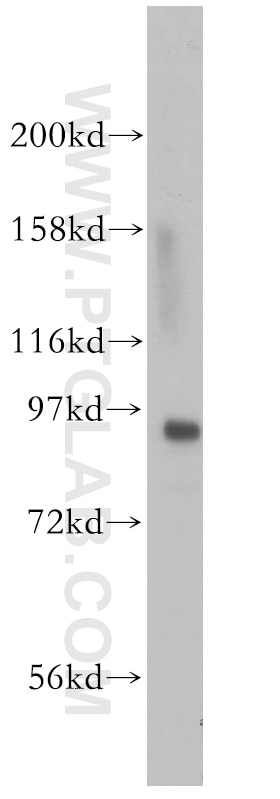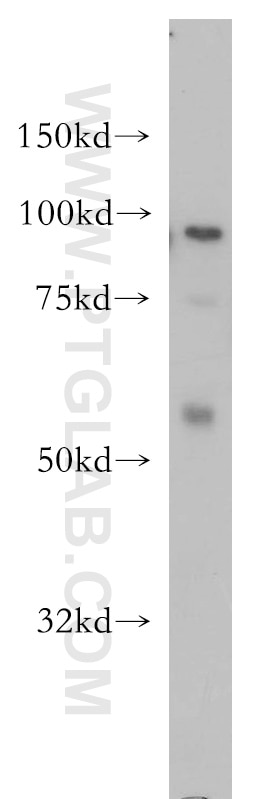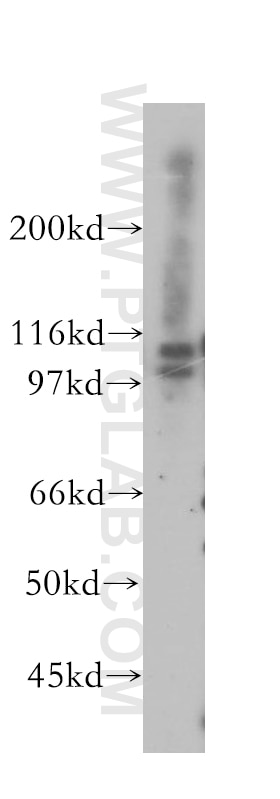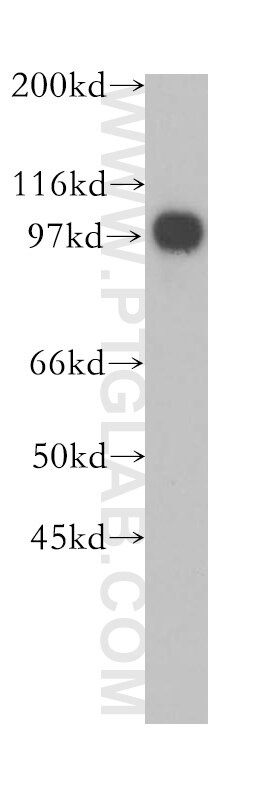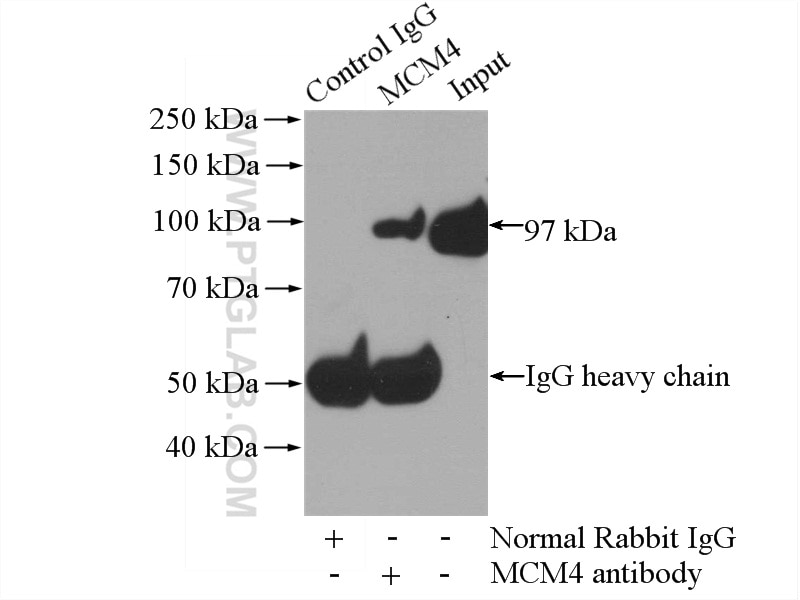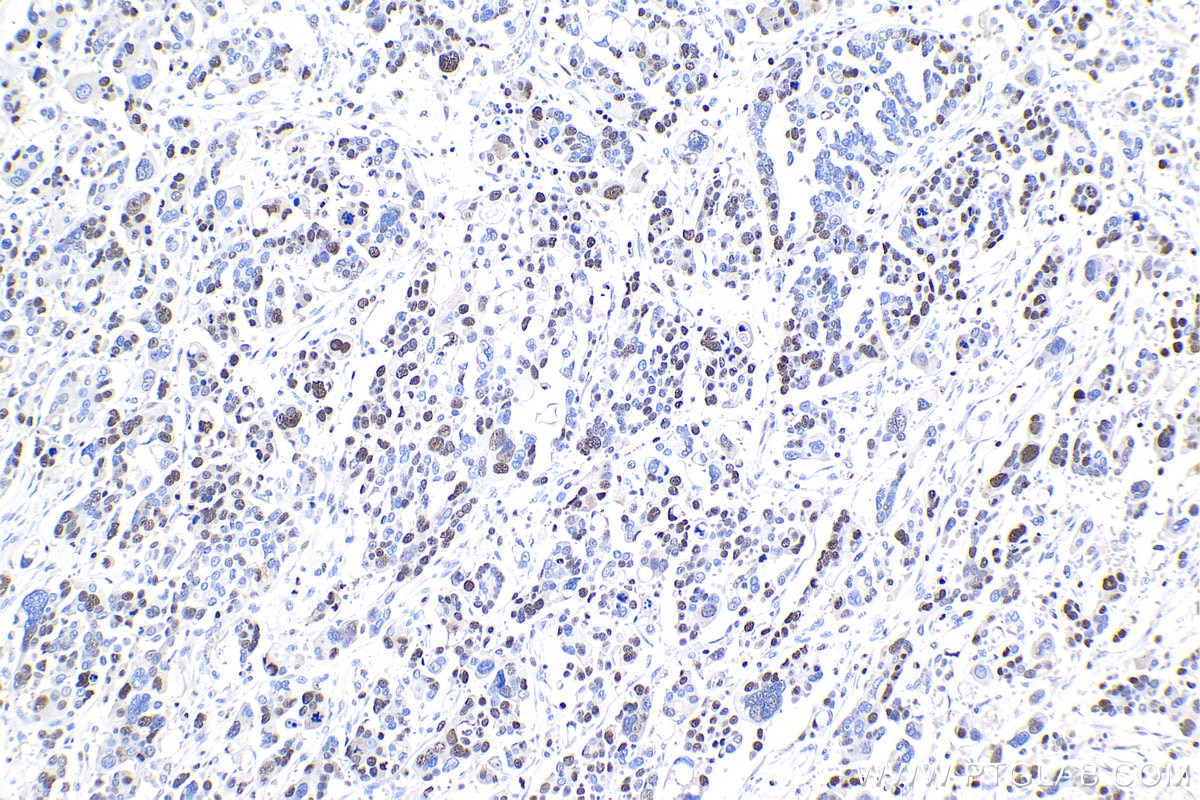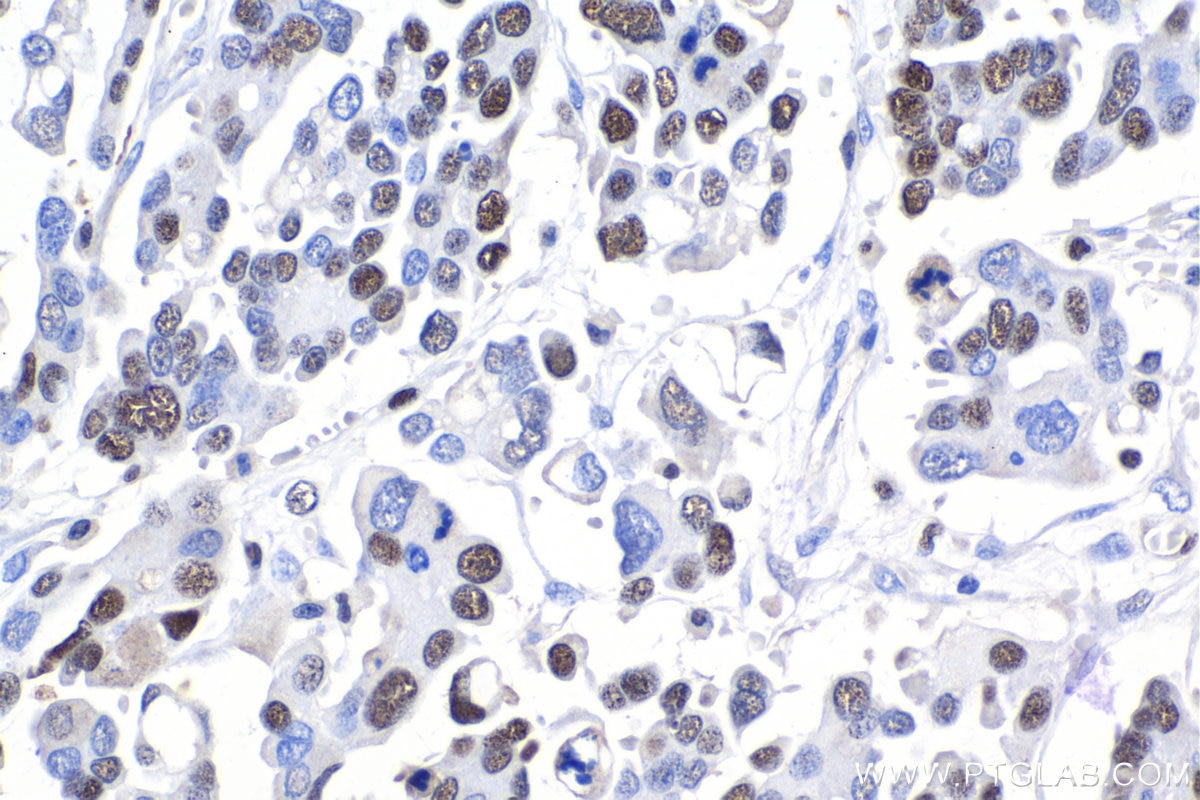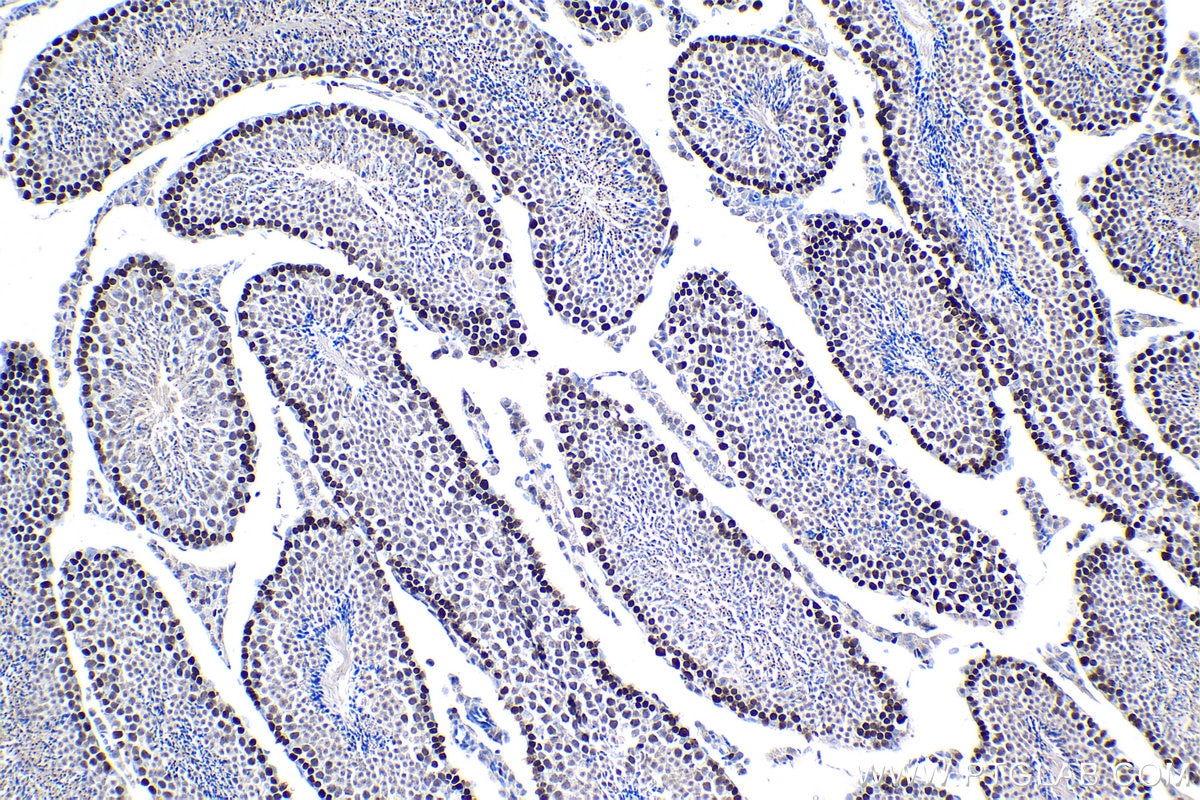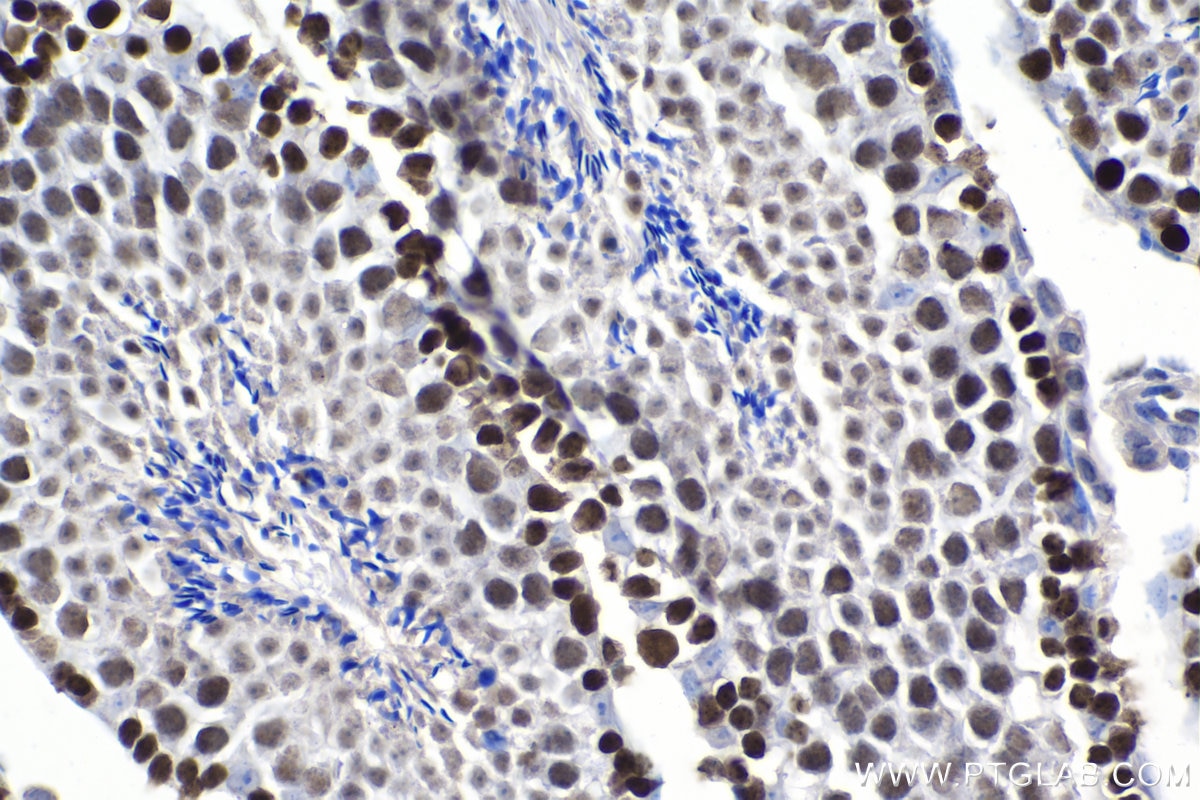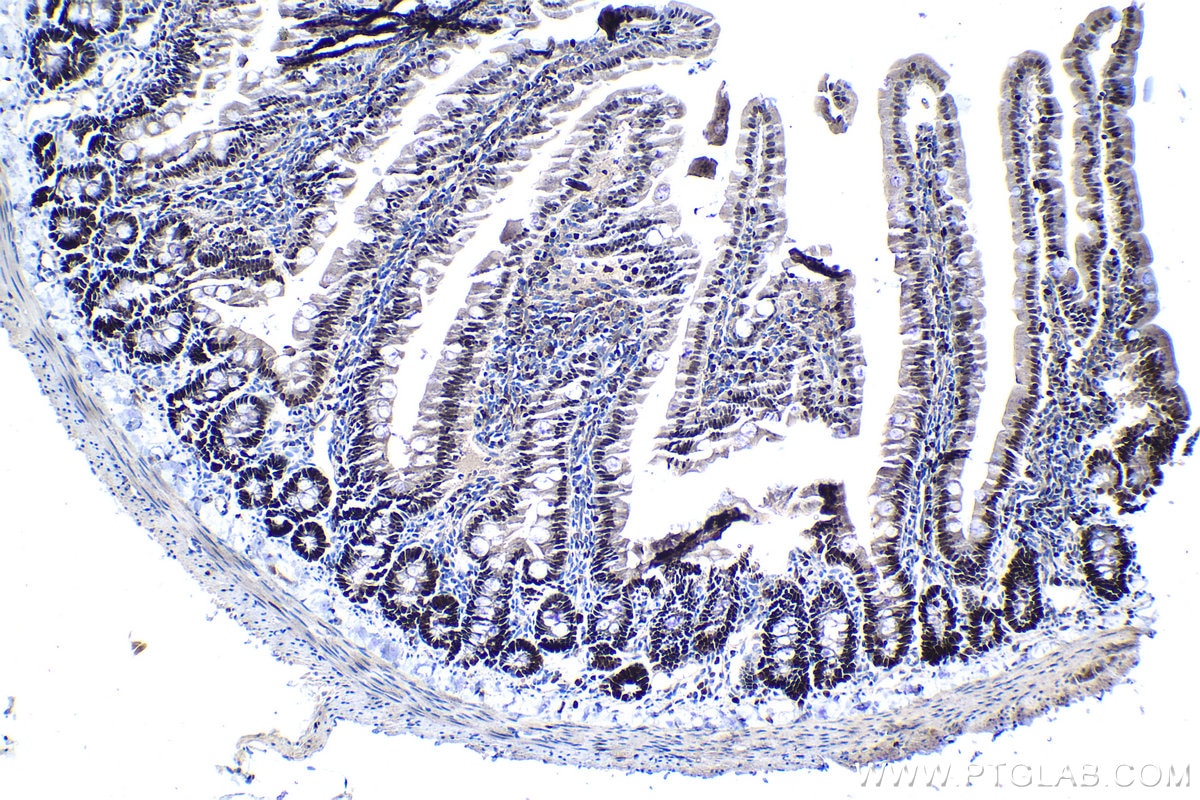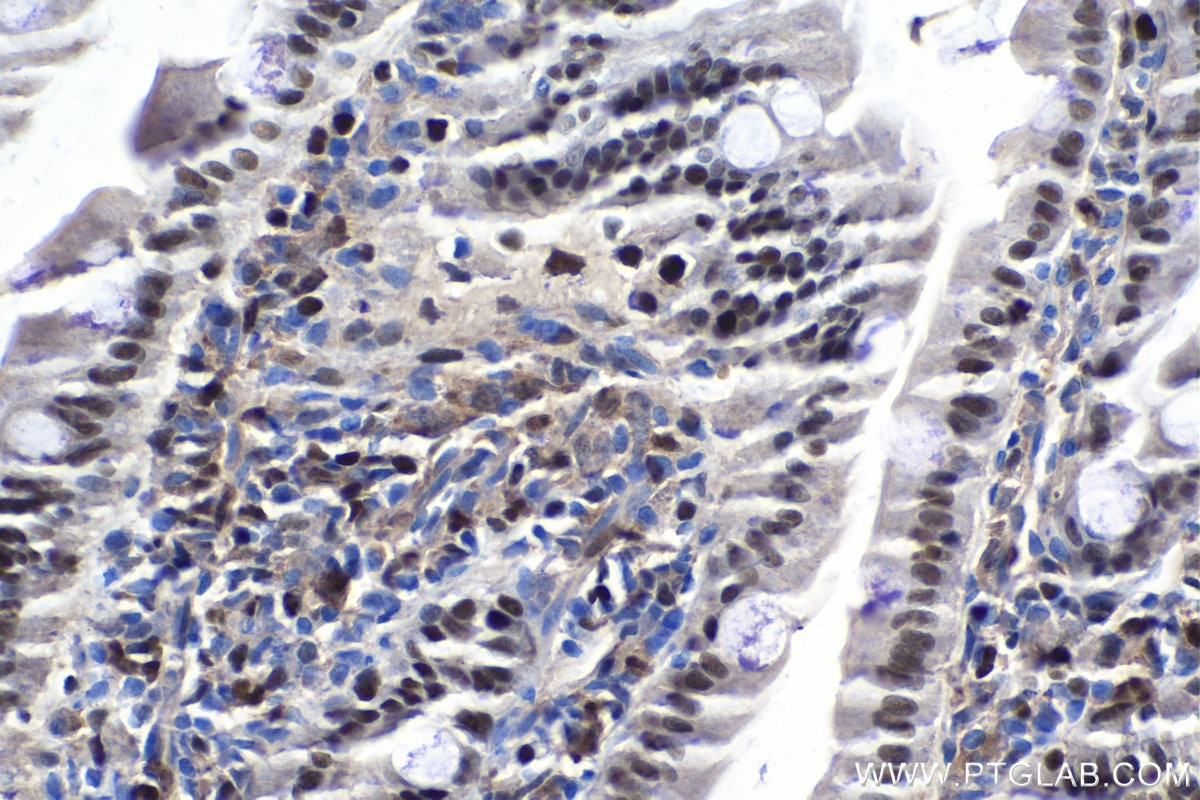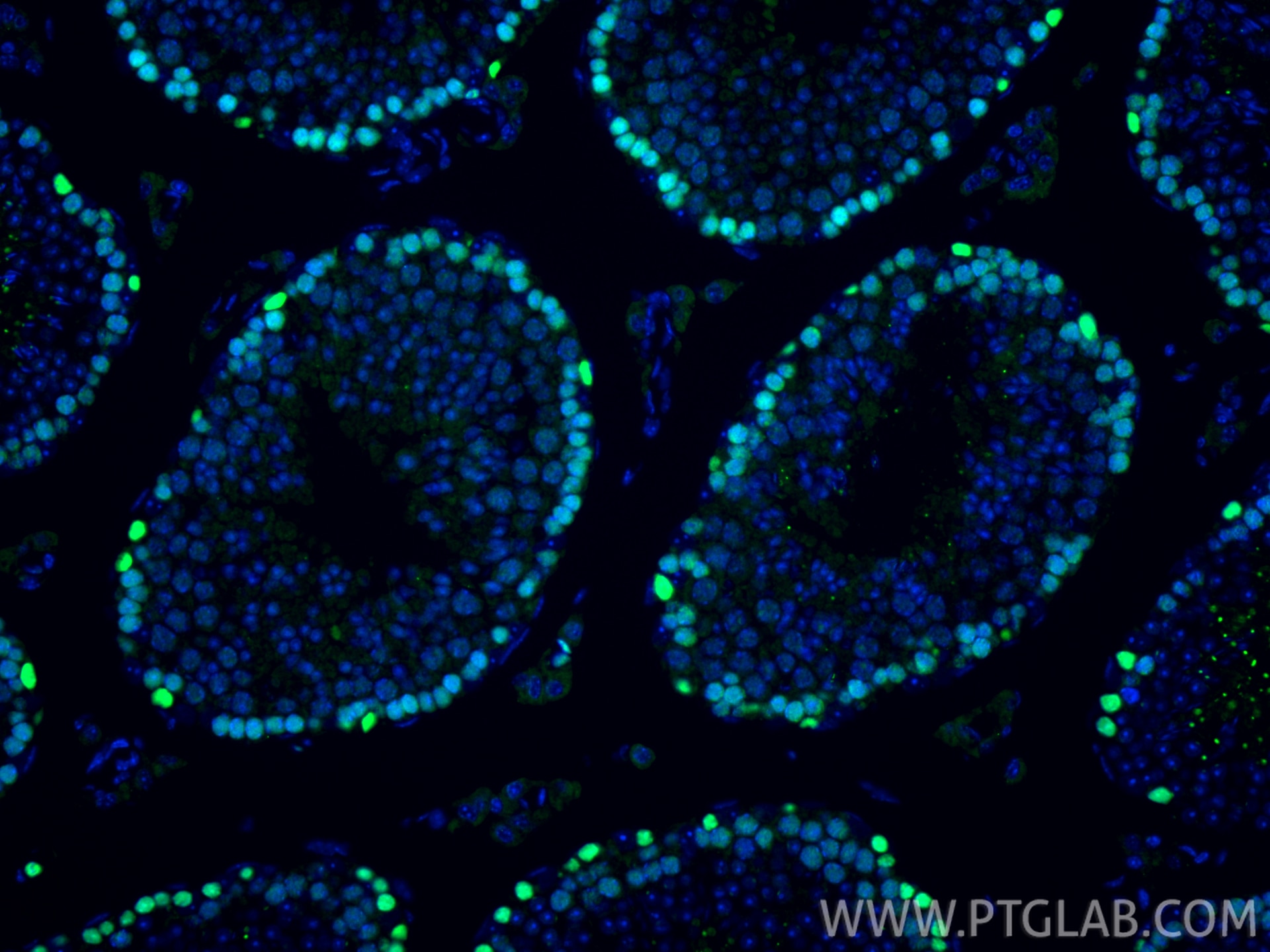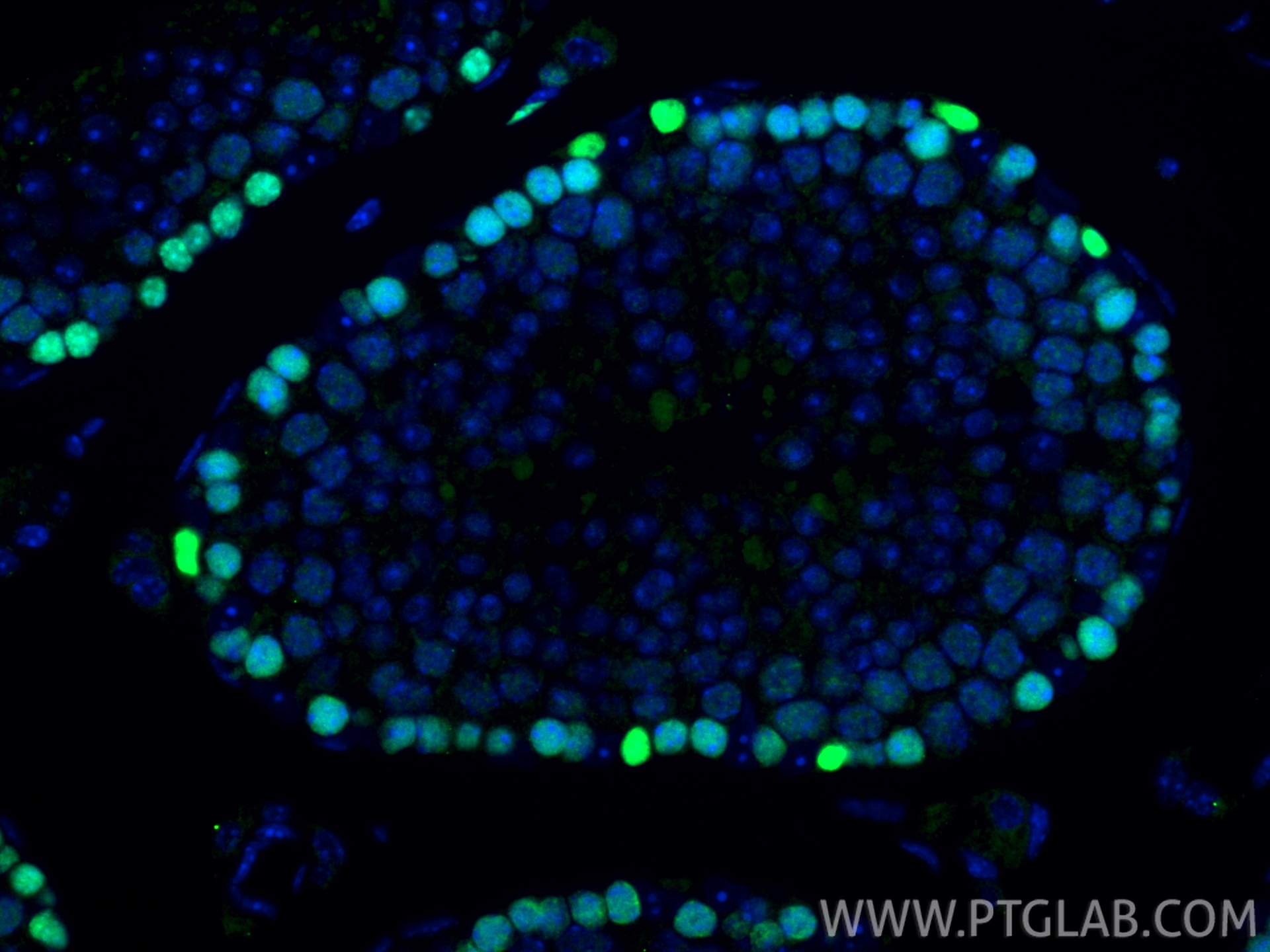Anticorps Polyclonal de lapin anti-MCM4
MCM4 Polyclonal Antibody for WB, IHC, IF-P, IP, ELISA
Hôte / Isotype
Lapin / IgG
Réactivité testée
Humain et plus (1)
Applications
WB, IHC, IF-P, IP, ELISA
Conjugaison
Non conjugué
N° de cat : 13043-1-AP
Synonymes
Galerie de données de validation
Applications testées
| Résultats positifs en WB | cellules HeLa, cellules HEK-293, cellules HL-60, tissu hépatique humain |
| Résultats positifs en IP | cellules HEK-293 |
| Résultats positifs en IHC | tissu de cancer du côlon humain, tissu de côlon de rat, tissu testiculaire de souris il est suggéré de démasquer l'antigène avec un tampon de TE buffer pH 9.0; (*) À défaut, 'le démasquage de l'antigène peut être 'effectué avec un tampon citrate pH 6,0. |
| Résultats positifs en IF-P | tissu testiculaire de souris, |
Dilution recommandée
| Application | Dilution |
|---|---|
| Western Blot (WB) | WB : 1:500-1:3000 |
| Immunoprécipitation (IP) | IP : 0.5-4.0 ug for 1.0-3.0 mg of total protein lysate |
| Immunohistochimie (IHC) | IHC : 1:1000-1:4000 |
| Immunofluorescence (IF)-P | IF-P : 1:50-1:500 |
| It is recommended that this reagent should be titrated in each testing system to obtain optimal results. | |
| Sample-dependent, check data in validation data gallery | |
Applications publiées
| WB | See 15 publications below |
Informations sur le produit
13043-1-AP cible MCM4 dans les applications de WB, IHC, IF-P, IP, ELISA et montre une réactivité avec des échantillons Humain
| Réactivité | Humain |
| Réactivité citée | Humain, souris |
| Hôte / Isotype | Lapin / IgG |
| Clonalité | Polyclonal |
| Type | Anticorps |
| Immunogène | MCM4 Protéine recombinante Ag3703 |
| Nom complet | minichromosome maintenance complex component 4 |
| Masse moléculaire calculée | 863 aa, 97 kDa |
| Poids moléculaire observé | 97 kDa |
| Numéro d’acquisition GenBank | BC031061 |
| Symbole du gène | MCM4 |
| Identification du gène (NCBI) | 4173 |
| Conjugaison | Non conjugué |
| Forme | Liquide |
| Méthode de purification | Purification par affinité contre l'antigène |
| Tampon de stockage | PBS with 0.02% sodium azide and 50% glycerol |
| Conditions de stockage | Stocker à -20°C. Stable pendant un an après l'expédition. L'aliquotage n'est pas nécessaire pour le stockage à -20oC Les 20ul contiennent 0,1% de BSA. |
Informations générales
DNA replication licensing factor MCM4 (MCM4), also named Cdc21, acts as component of the MCM2-7 complex (MCM complex) which is the putative replicative helicase essential for 'once per cell cycle' DNA replication initiation and elongation in eukaryotic cells. The active ATPase sites in the MCM2-7 ring are formed through the interaction surfaces of two neighboring subunits such that a critical structure of a conserved arginine finger motif is provided in trans relative to the ATP-binding site of the Walker A box of the adjacent subunit. The six ATPase active sites, however, are likely to contribute differentially to the complex helicase activity.This antibody is a rabbit polyclonal antibody raised against the C-terminal 350 aa sequence of MCM4 protein.
Protocole
| Product Specific Protocols | |
|---|---|
| WB protocol for MCM4 antibody 13043-1-AP | Download protocol |
| IHC protocol for MCM4 antibody 13043-1-AP | Download protocol |
| IF protocol for MCM4 antibody 13043-1-AP | Download protocol |
| IP protocol for MCM4 antibody 13043-1-AP | Download protocol |
| Standard Protocols | |
|---|---|
| Click here to view our Standard Protocols |
Publications
| Species | Application | Title |
|---|---|---|
Nat Struct Mol Biol A new vertebrate SUMO enzyme family reveals insights into SUMO-chain assembly. | ||
Biomaterials Biocompatible PEGylated Gold nanorods function As cytokinesis inhibitors to suppress angiogenesis. | ||
Phytother Res Activation of endoplasmic reticulum stress by harmine suppresses the growth of esophageal squamous cell carcinoma | ||
Oncotarget Lamin B2 binding to minichromosome maintenance complex component 7 promotes non-small cell lung carcinogenesis. | ||
Ecotoxicol Environ Saf The influence of phenolic environmental estrogen on the transcriptome of uterine leiomyoma cells: A whole transcriptome profiling-based analysis. | ||
Biology (Basel) In Situ Peroxidase Labeling Followed by Mass-Spectrometry Reveals TIA1 Interactome. |
